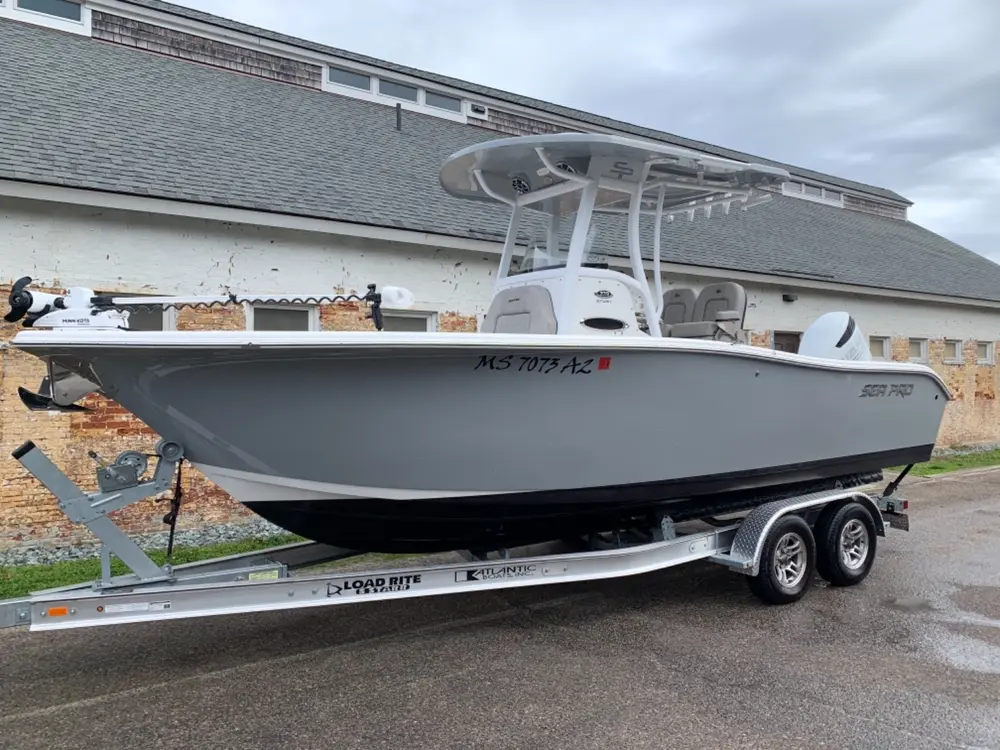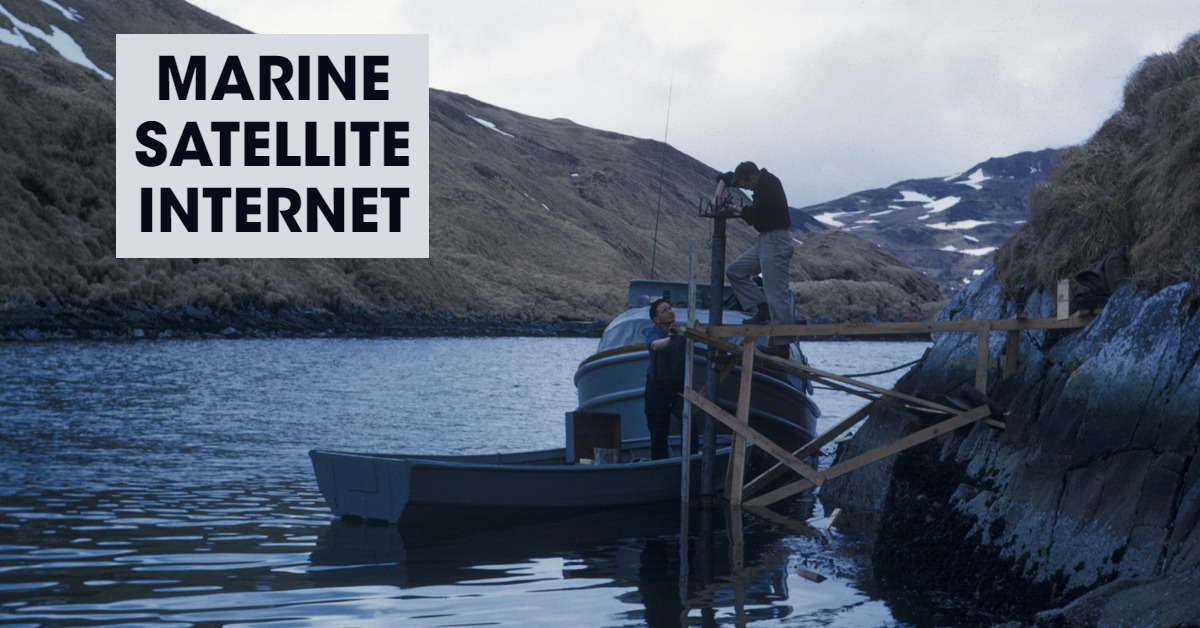Picture this: you’ve just bought a brand-new trolling motor for your boat, and you can’t wait to hit the open water. But wait! You’ve only ever used it in freshwater, and now you’re planning a trip to the salty seas. Can you use a freshwater trolling motor in saltwater?
This is a question many boating enthusiasts find themselves asking, and the answer is both yes and no. Let’s dive into the details and explore the world of trolling motors and their compatibility with different water environments.

Freshwater vs. Saltwater Trolling Motors: What’s the Difference?
First things first, let’s discuss the key differences between freshwater and saltwater trolling motors. Freshwater trolling motors are specifically designed for use in lakes, rivers, and other bodies of freshwater.
They are typically less expensive than their saltwater counterparts, but they lack the corrosion-resistant materials and features needed to withstand the harsh conditions of saltwater environments.
On the other hand, saltwater trolling motors are engineered to handle the corrosive nature of saltwater. They are built with materials like stainless steel, anodized aluminum, and other corrosion-resistant components that can withstand the wear and tear of the ocean. In addition, saltwater trolling motors often have sealed electrical connections and additional coatings to prevent saltwater intrusion.

The Risks of Using a Freshwater Trolling Motor in Saltwater
Now that we understand the basic differences between the two types of trolling motors, let’s discuss the risks of using a freshwater trolling motor in saltwater. It might be tempting to use your freshwater motor in saltwater, especially if you’re only planning a short trip, but doing so could have serious consequences.
Corrosion and Damage
The primary issue with using a freshwater trolling motor in saltwater is corrosion. Saltwater is highly corrosive, and it can cause significant damage to the motor’s components, including the metal parts, wiring, and electrical connections. While it might not be noticeable after just one outing, repeated exposure to saltwater will eventually lead to irreversible damage and a decreased lifespan for your trolling motor.
Performance and Efficiency
Another concern when using a freshwater trolling motor in saltwater is its performance and efficiency. The added resistance of saltwater can lead to increased energy consumption, which means that your motor will work harder and consume more battery power than it would in a freshwater environment. This can result in reduced run time and overall performance, which is certainly not ideal when you’re trying to navigate the open seas.
Warranty Voided
Finally, using a freshwater trolling motor in saltwater may void your warranty. Manufacturers typically specify the intended use for their products, and if you’re using your trolling motor in a way that’s not recommended, the manufacturer may not honor your warranty
claims. This means that if your motor becomes damaged due to corrosion or other saltwater-related issues, you could be left with a costly repair bill.
The Benefits of Investing in a Saltwater Trolling Motor
Although it might be tempting to save money by using a freshwater trolling motor in saltwater, the potential risks and downsides far outweigh the benefits. Instead, it’s well worth investing in a saltwater trolling motor specifically designed for the harsh marine environment.
Durability and Longevity
As mentioned earlier, saltwater trolling motors are built with corrosion-resistant materials, which means they are better suited to withstand the harsh conditions of saltwater environments. This results in a more durable and long-lasting trolling motor that can serve you well for many years, ultimately saving you money in the long run.
Enhanced Performance
Saltwater trolling motors are designed to handle the increased resistance and challenges of saltwater, meaning they offer better performance and efficiency compared to freshwater trolling motors. With a saltwater trolling motor, you’ll be able to navigate the open seas more effectively, making your boating experience more enjoyable.
Peace of Mind
Investing in a saltwater trolling motor means that you won’t have to worry about the potential risks and damages associated with using a freshwater motor in saltwater. Plus, you’ll have the added peace of mind of knowing that your warranty will remain intact, protecting your investment in case of any issues.
Final Thoughts: Can You Use a Freshwater Trolling Motor in Saltwater?
In conclusion, while it’s technically possible to use a freshwater trolling motor in saltwater, the risks and potential damage far outweigh any short-term benefits. Corrosion, decreased performance, and a voided warranty are just a few of the issues you may face when using a freshwater motor in a saltwater environment.
Instead, it’s highly recommended to invest in a saltwater trolling motor specifically designed to handle the harsh conditions of marine environments. With a saltwater motor, you’ll enjoy enhanced durability, improved performance, and peace of mind knowing your investment is protected.
By now, you should have a clear understanding of why it’s crucial to use the right trolling motor for the right environment. So, the next time you plan a boating adventure, make sure you’re well-equipped with a trolling motor designed for the waters you’ll be exploring. Happy boating!
Frequently Asked Questions (FAQ)
Can I convert my freshwater trolling motor to a saltwater trolling motor?
While it’s possible to make some modifications to your freshwater trolling motor, such as adding corrosion-resistant coatings and materials, it’s generally not recommended. Converting a freshwater motor to a saltwater motor may not provide the same level of performance, durability, and protection as a dedicated saltwater trolling motor. Additionally, any modifications may void your warranty.
How do I maintain my saltwater trolling motor?
Regular maintenance is crucial for the longevity of your saltwater trolling motor. After each use, thoroughly rinse the motor with fresh water to remove any salt residue. Periodically inspect the motor for signs of corrosion and apply corrosion-resistant spray or lubricants as needed. Always store the motor in a dry, well-ventilated area when not in use. Check your owner’s manual for any additional maintenance recommendations specific to your trolling motor model.
Can I use a saltwater trolling motor in freshwater?
Yes, you can use a saltwater trolling motor in freshwater without any issues. Saltwater trolling motors are designed to be more durable and corrosion-resistant, making them suitable for both saltwater and freshwater environments. In fact, using a saltwater motor in freshwater can provide an extra layer of protection and durability, as the motor will be less susceptible to damage from freshwater elements.
Will my trolling motor battery life be affected in saltwater?
Saltwater offers more resistance compared to freshwater, which means your trolling motor may consume more energy while operating in saltwater. This increased energy consumption could result in reduced battery life. To counteract this, ensure your battery is fully charged before each trip and consider investing in a high-capacity battery or an additional backup battery.
How can I tell if my trolling motor is designed for saltwater?
To determine whether your trolling motor is designed for saltwater, check the owner’s manual or the manufacturer’s website for information about your specific model. Saltwater trolling motors will typically be labeled as such or have a designation like “marine” or “ocean” in their product name. Additionally, you can look for features such as corrosion-resistant materials (e.g., stainless steel, anodized aluminum), sealed electrical connections, and special coatings that indicate the motor is designed for saltwater use.
Can I use a freshwater trolling motor in brackish water?
Brackish water, which is a mix of saltwater and freshwater, can still cause corrosion and damage to a freshwater trolling motor, although at a slower rate compared to pure saltwater environments. If you plan to use your trolling motor in brackish water frequently, it’s advisable to invest in a saltwater trolling motor for added protection against corrosion and potential damage. If you do use a freshwater trolling motor in brackish water occasionally, make sure to thoroughly rinse it with fresh water after each use and perform regular maintenance checks to minimize the risk of corrosion.
Can I extend the lifespan of my freshwater trolling motor if I only use it in saltwater occasionally?
While it’s not recommended to use a freshwater trolling motor in saltwater, if you do so occasionally, you can take some precautions to minimize potential damage. Always rinse the motor thoroughly with fresh water after each saltwater use, perform regular maintenance checks, and apply corrosion-resistant coatings and lubricants as needed. However, keep in mind that even with these precautions, using a freshwater trolling motor in saltwater will likely reduce its overall lifespan and may void your warranty.
- Sustainable and Luxurious: Discovering Split’s Yachting Paradise – April 26, 2024
- MarineTraffic vs VesselFinder: Which Is Better Vessel Tracking Service? – February 14, 2024
- Port Costs: A Comprehensive Guide to Port Dues and Fees for Cargo Ships – February 12, 2024




Leave a Reply